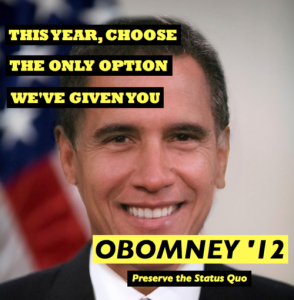It shouldn’t be easy for a group of Antiwar.com writers and supporters to just walk in and dish about foreign policy at the Left Forum, which claims to be the biggest annual convocation of Leftwing activists in the country.
But it was — easy, that is. In fact, some of us probably made it harder for the Leftwing participants at the New York City confab to prove to us that that they weren’t just humanitarian “imperialists” in disguise. Imperialists – that’s a dirty word in these parts, on any side of the aisle.
Which made for an interesting panel discussion on Saturday, moderated by this writer, who was trying to drill down on the question of whether the United States had any moral obligation to intervene in Syria because a) there was (or at least it began as) an organic freedom movement trying to topple a repressive government that had been tacitly supported by America for years, and b) there is a growing human crises that stands to get worse, not just for Syria but for the entire region, which is already fragile from war, refugees and sectarian strife.
This question is particularly salient today because the Obama Administration is expected to “decide” this week whether the U.S will start assisting the rebels with heavy arms (something my co-panelists and many in the audience clearly oppose). And while President Obama has already ruled out “boots on the ground,” there is an ongoing debate about the “less likely” option of helping to impose a no-fly zone and “deploying American air power to ground the regime’s jets, gunships and other aerial assets,” according to an Associated Press report on Sunday.
With help from the Russians and Hezbollah on the ground fighting for Bashar Assad’s Syrian Army forces, the government has in the last week taken back the city of Qusair and is on the march north to recapture Homs and Aleppo, the very source of the rebellion’s strength. The fall of Qusair blocks a strategic supply route for the rebels and the fall of the two other major cities would reopen the government’s access to the coast and a vital corridor of predominantly Shia-Allawite support. In other words, it’s not looking too good for the revolution.
I was joined Saturday to talk about these developments and more by Gareth Porter, John Walsh, Chase Madar, Evan Siegel, and Lorraine Barlett, all of whom who would either consider themselves Left or libertarian, but decidedly anti-war and comfortable working with the Right end of the spectrum on national security issues. All save for Seigel have written for Antiwar.com or The American Conservative magazine.
The audience was decidedly Left, and, judging from the exhibition hall downstairs, way more comfortable with Karl Marx and Leon Trotsky than Randolph Bourne or Ron Paul. But judging from many of the knowing smiles and murmurs of agreement throughout the nearly two-hour discussion – surprise – we had a lot in common, at least on foreign policy.
First off – there seemed to be a hard line against intervention in Syria or anywhere else. “Bombs for peace” didn’t hold well with this crowd. “(Intervention) will only complicate and cause more death than help in Syria,” said Siegel, an adjunct professor at the New York City College of Technology and veteran peace activist. “They have to work it out for themselves,” said Walsh, a microbiology professor who co-founded ComeHomeAmerica.us and over the course of his own activism has shifted from Left, closer to libertarianism. He appeared the most unyielding of them all on the panel, saying any move to assist the rebels would be seen as imperialist in nature.
Porter agreed. “Don’t be suckers,” he said simply. A mantra for our times. More seriously, Porter entered into an exposition in which he explained that the National Security State — the Armed Forces, the National Security Council, Joint Chiefs and Pentagon — were disinterested in a Syrian intervention anyway. “It’s not in the interest of the National Security State,” he insisted, “because they believe the cost of war to the National Security State itself would be greater than the benefit to the National Security State. In other words, it’s about their bottom line.”
In that vein, Madar, who has written extensively on recent U.N. Ambassador nominee Samantha Power, said fierce liberal interventionists like her pick and choose their “crises” and show their bias when they conspicuously leave politically unfeasible or inexpedient conflicts off their list of struggles worthy of outside assistance.
When I interviewed a few of the audience members after the session they seemed to share much of the sentiments. “It’s ridiculous to push on one side and not give them the chance to decide for themselves,” said Linda D’Angelo from Ohio. “We can’t put our fingers in all of the dykes.”
Not everyone was digging the tone and direction of the speakers, who were basically asserting that the excuse of “humanitarianism” was often used to meddle, but that the United States has only really intervened for its own interests, and in Syria, there was no interest at stake. Furthermore, whether there was an “interest or not,” all five speakers advocated a consistent hands-off policy. For at least one bespectacled man in the audience who spoke up, this equated with allowing a “slaughter” to continue.
He waited patiently to be called upon and when he was, unleashed a Gatling gun of invectives on the panel, calling them and Antiwar.com, “apologists for genocide,” “Islamophobes,” and “crypto-Stalinists.”
Interestingly, after a brief skirmish broke out, with members of the panel and the audience defending the speakers from his accusations, the man abruptly walked out. But not before he was quietly jeered by both sides on his way to the door.

But the question of whether the U.S might have some obligation to do something in the face of a humanitarian crisis that stands to affect half of Syria’s 20 million population by the end of the year (already, 1.5 million refugees have left Syria, while 4.5 million are displaced inside), still seems to make some uncomfortable. The conversation often drifted toward the history of U.S war policy, empire and the broader principles of anti-interventionism. There seemed to be some consensus around imposing a total arms embargo in order to let both sides fight it out without interference from the Gulf States, Europe, Russia, Iran, U.S.., etc., but then most conceded that it was likely too far gone for that anyway.
Probably the most heartening thing to come out of the 50-minute exchange in that university classroom was the largely positive (not counting the singular fury that left the room) reaction from the audience. One gentleman admitted he had no idea there was this common ground with “the other side” of the political spectrum before.
There were nodding heads all around. Mission accomplished? Perhaps.






